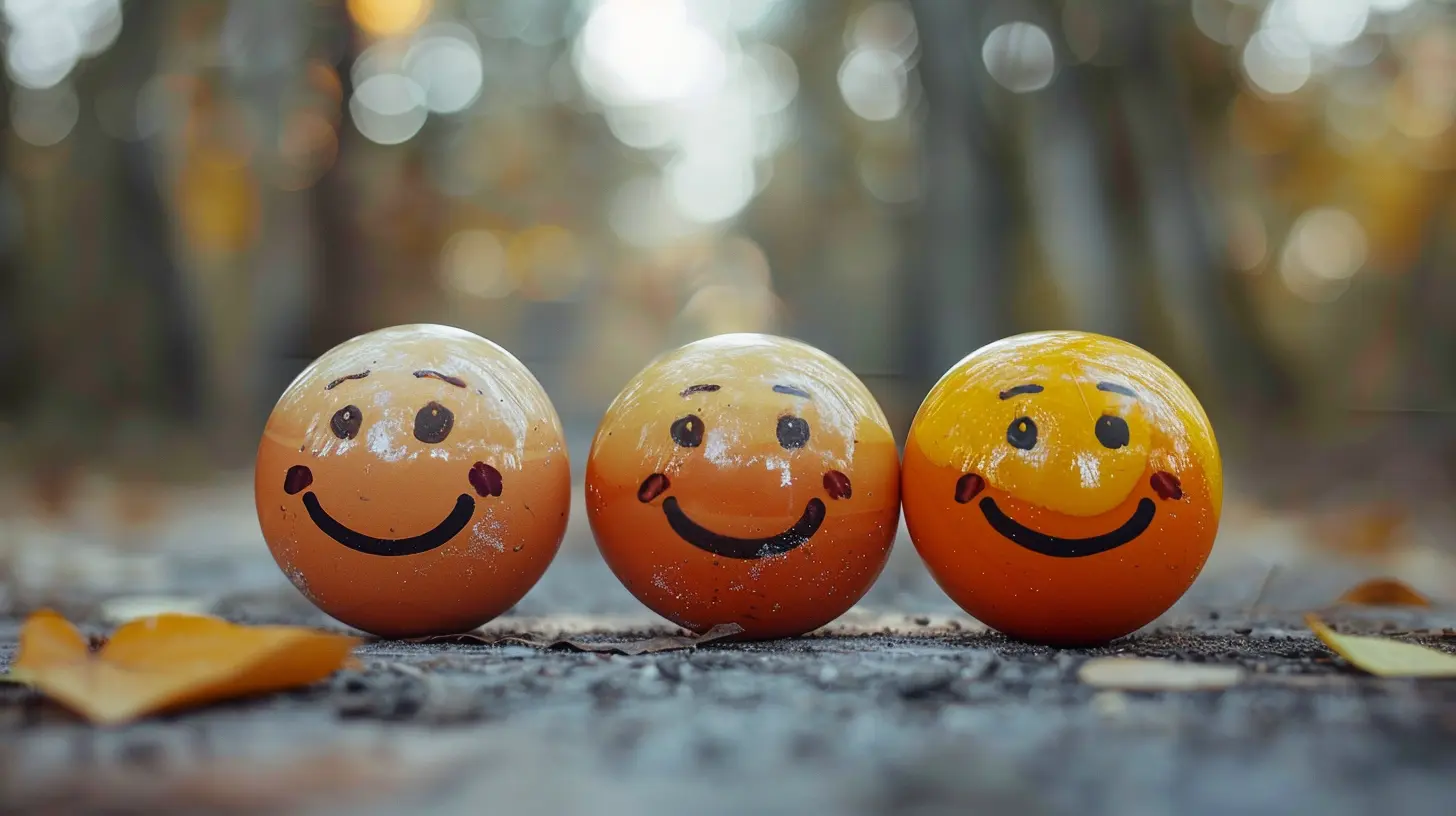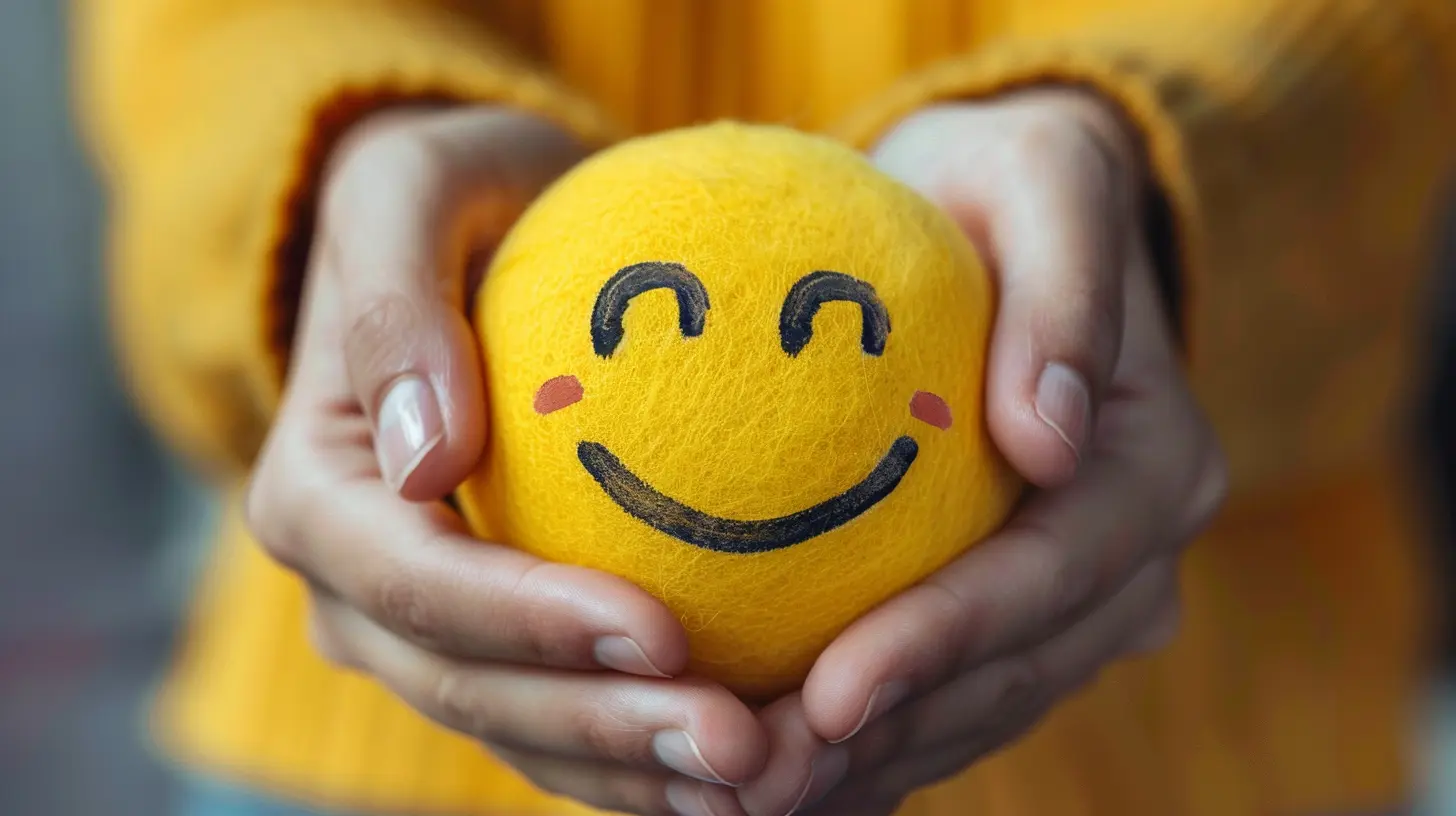The Role of Gratitude in Boosting Self-Esteem
28 August 2025
Ever had one of those days where you feel like a potato in a world of French fries? Everyone else seems to be sizzling away, achieving stuff, while you're just... mashed. Yeah, we’ve all been there. But here’s the kicker—what if the secret sauce to lifting yourself up wasn’t some magical self-help potion, but something as simple and often overlooked as gratitude?
Sounds too warm-n-fuzzy to work, right? Stick around, because we’re diving deep into the quirky, brain-hugging world of gratitude and how it actually turbocharges your self-esteem. Think of it as emotional rocket fuel—no rocket science required.
Gratitude and Self-Esteem: The Unexpected Power Couple
Let’s break this down. Gratitude is that warm feeling you get when someone holds the door open for you or when your barista spells your name right. Self-esteem, on the other hand, is your inner voice—the one cheering you on (or, let's be honest, sometimes loudly criticizing you while you're just trying to eat your cereal in peace).So how do these two vibes link up?
Here’s the wild part—when you actively practice gratitude, you're not only appreciating what you have, but you start recognizing who you are in the process. It's like you're giving yourself invisible high-fives all day long. And guess what? That builds confidence. It’s a sneaky way to strengthen your sense of self-worth without even realizing you're doing it.
Why Your Brain Loves Gratitude
You know those happy chemicals your brain likes to release—dopamine, serotonin, oxytocin? Gratitude gives them a reason to party. When you focus on the things you're thankful for, your brain kicks into “feel good” mode. It's like giving your neurons a spa day.Here's how it works:
- Serotonin: Helps regulate mood. More gratitude = more serotonin = fewer gloomy days.
- Dopamine: The "reward" chemical. Feeling thankful makes your brain go “Yay, I like this feeling! Let’s do more of it!”
- Oxytocin: Known as the “love hormone,” it helps you feel connected and secure with others.
These chemicals create a feedback loop. The more you focus on gratitude, the more your brain reinforces positive thinking—and poof, your self-esteem levels start to rise like a perfectly baked loaf of banana bread.
Gratitude Isn’t Just for Saints and Yoga Instructors
Let’s squash a myth real quick: Gratitude isn't just for people who have it all together. In fact, it’s especially powerful when life feels like a scrambled playlist of chaos. Practicing gratitude in tough times helps you reframe your experience. It’s like yelling “plot twist!” in the middle of a drama-filled movie.Instead of focusing on what’s missing or what’s gone wrong, gratitude nudges you to look at what is going right—even if it’s just, “Hey, I managed to drink water today instead of four cups of coffee.”
And let’s be real: self-esteem doesn’t blossom in a vacuum of perfection. It thrives in the cracks where you notice that even amid the junk, there’s still something to appreciate. That mindset builds emotional resilience and, in turn, boosts your inner cheerleader.
How Gratitude Shapes Your Inner Narrative
Your inner narrative—aka the story you tell yourself about who you are—can make or break your self-esteem. It’s like wearing a pair of sunglasses that tint everything you see.If your self-talk is full of “I’m not good enough” or “I never do anything right,” guess what? That’s going to become your default lens. But when you bring gratitude into the picture, you start shifting the tone.
Try this: Instead of saying, “Ugh, I failed that presentation,” say, “Wow, I learned a lot from that hiccup. Grateful for the chance to grow.”
Boom. See what happened there? You went from beating yourself up to lifting yourself up. Gratitude flips the script and rewrites your internal dialogue with kindness—and self-esteem loves kindness.
The Science Backs It Up (Because Nerdy Stuff is Cool)
For those of you who like receipts, here they are: Multiple studies show that gratitude improves psychological well-being. One 2014 study published in the Journal of Applied Sport Psychology found that athletes who practiced gratitude had higher self-esteem and better performance. Not just better feels, but better results.Another study from the University of California found that people who kept a gratitude journal exercised more, reported fewer physical symptoms, and felt better about themselves overall. These peeps weren’t born with glowing confidence—they built it with daily doses of thankfulness.
So yeah, science is basically that friend who looks you dead in the eye and goes, “Gratitude? It works. Do it.”
Practical Ways to Sprinkle Gratitude into Your Daily Routine
Okay, okay. So gratitude is great. But how do you actually do it without sounding like you’re writing for a Hallmark card?Here’s a quick list of not-so-boring ways to build your gratitude muscle:
1. The 3-Things Method
Every night, write down three things you’re grateful for. Anything counts—grilled cheese sandwiches, a good hair day, or the fact that you didn’t trip over your shoelaces.2. Shout-Out Sessions
Text a friend and tell them one thing you appreciate about them. It’ll make their day, and yours too. It's like throwing kindness confetti.3. Mirror Pep Talks
Look in the mirror and thank yourself. “Hey, thanks for getting out of bed today, champ.” It might feel weird at first, but weird tends to lead to wonderful.4. Gratitude Walks
Take a walk and mentally note all the things around you that you're thankful for: trees, dogs, that squirrel doing parkour—anything!5. Gratitude Jar
Write thank-you notes to yourself or others and toss them in a jar. When you’re feeling low, pull one out and bask in the gratitude glow.What Happens to Your Self-Esteem Over Time?
Here’s the delightful secret: Gratitude is like compound interest for your confidence. You won’t notice massive changes overnight. But little by little, as you keep showing up with a thankful heart, your self-perception starts to shift.You'll begin to:
- Feel less anxious about judgment
- Bounce back faster from setbacks
- Trust your own decisions more
- Speak more kindly to yourself
- Stand taller (maybe not literally, but you’ll feel like you did)
Over time, gratitude rewires your mental landscape, and suddenly, you’re not just surviving—you’re thriving. With swagger.
Gratitude vs. Toxic Positivity (Yep, There’s a Difference)
Let’s clear the air on something important.Gratitude does not mean slapping a smile on your face during a dumpster fire. It’s not about pretending everything’s fine when it’s actually not. That’s toxic positivity. Gratitude, instead, is about acknowledging the hard stuff and still finding one small bright spot.
It’s as if life hands you a soggy sandwich, and you say, “Okay, this stinks... but at least the pickles are good.” That tiny moment of appreciation doesn’t erase the struggle—it just gives it context.
Gratitude is real, grounded, and honest. And that kind of truth-telling boosts authentic, unshakable self-esteem.
Final Thoughts: Gratitude is the Unsung Hero of Confidence
Look, building self-esteem isn’t about inflating your ego like a hot air balloon. It’s about grounding yourself in your own worth—and gratitude is one of the most effective tools for doing that.When you wake up and choose to notice the little wins, the people who care, the strengths you often overlook, your brain takes notes. It remembers. And slowly, your inner critic takes a back seat while your inner hype squad cranks the volume.
So go ahead—write that thank-you note, start that journal, or just mentally high-five yourself for making it through the day. Your self-esteem will thank you, and probably throw a party with balloons shaped like serotonin molecules.
all images in this post were generated using AI tools
Category:
Self EsteemAuthor:

Nina Reilly
Discussion
rate this article
1 comments
Theodora McLemore
Gratitude not only enhances our perception of self-worth but also cultivates resilience. By acknowledging what we cherish, we transform our narrative from scarcity to abundance, ultimately fostering a healthier self-image and deeper connections with ourselves and others.
September 9, 2025 at 4:15 AM

Nina Reilly
Thank you for your insightful comment! I completely agree—gratitude truly shifts our perspective, enhancing self-worth and nurturing resilience in both ourselves and our relationships.


